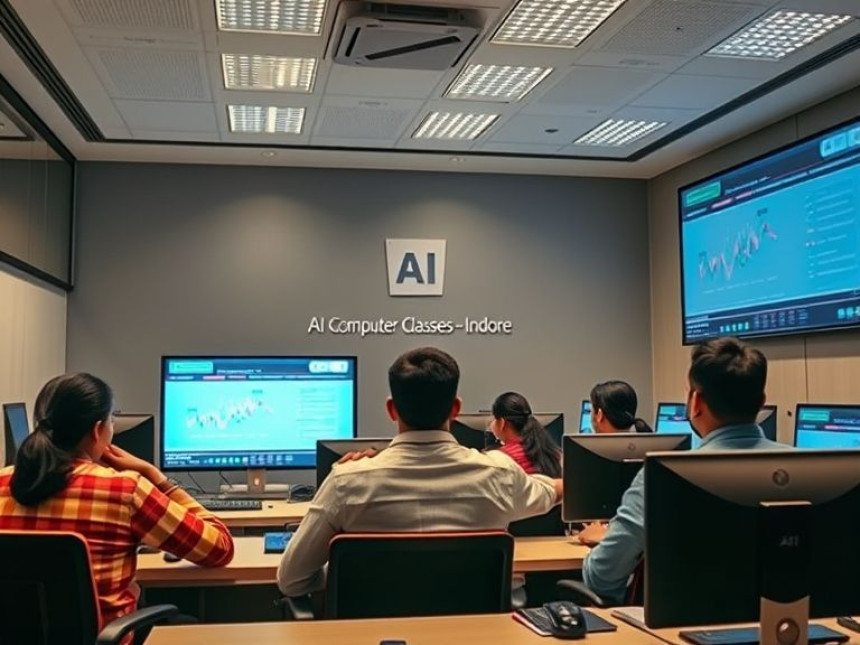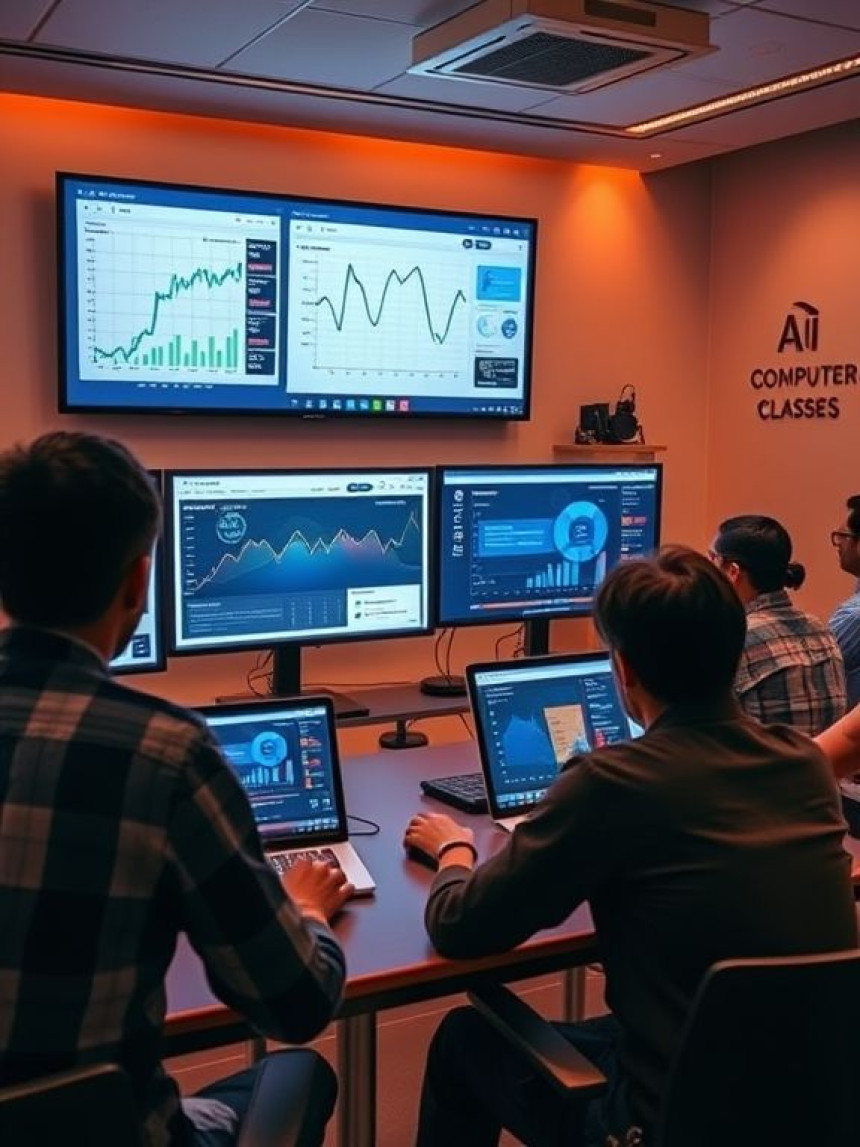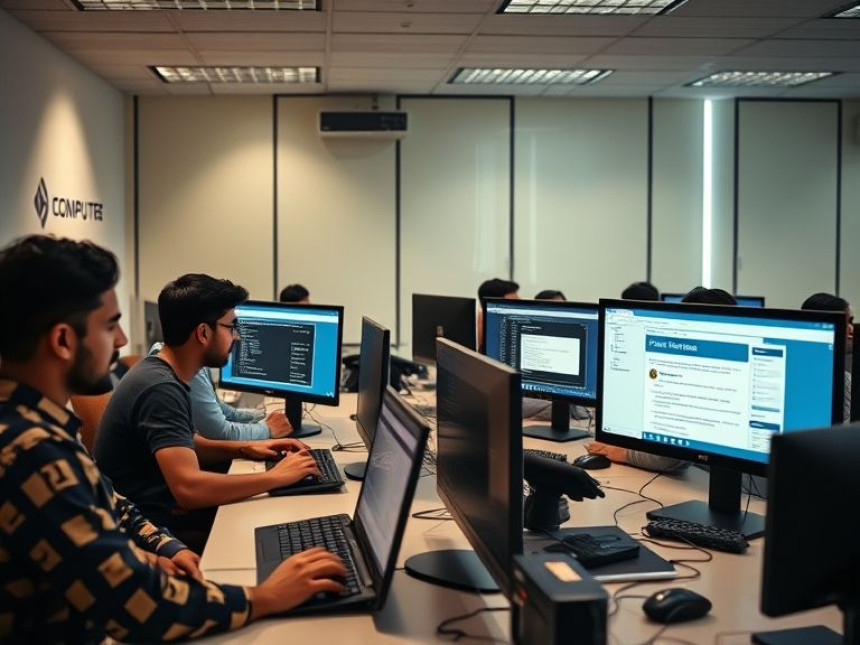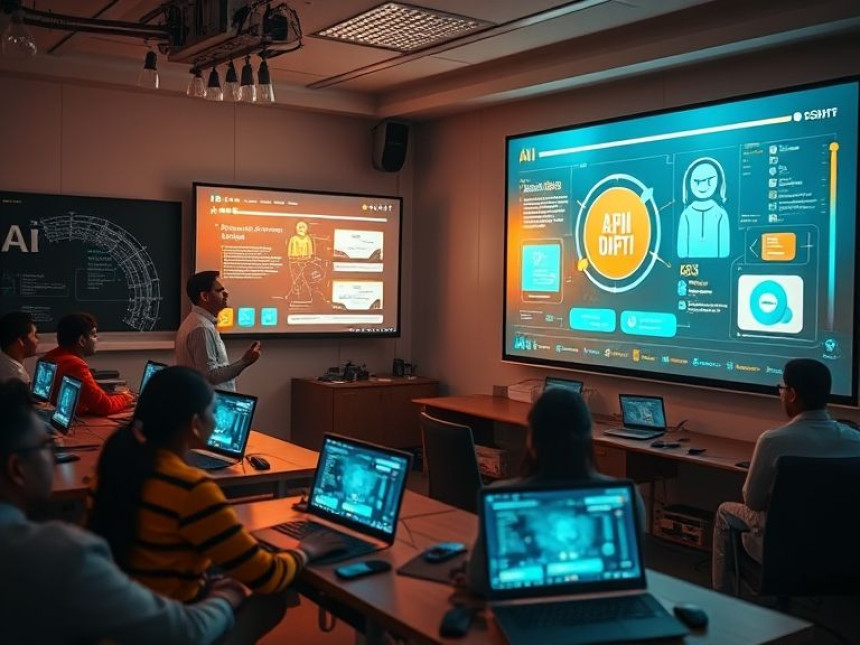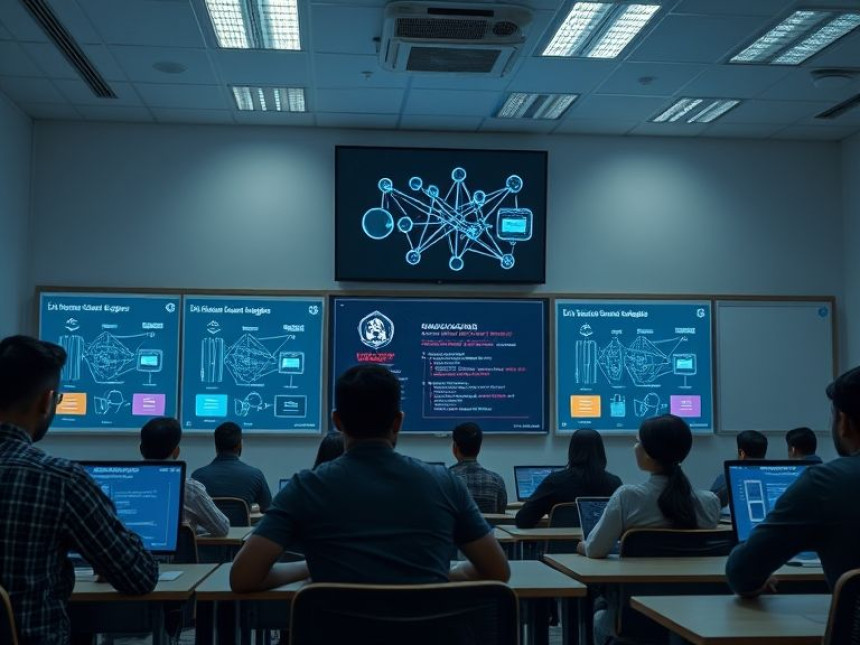
Quick Tutorial: Blockchain Basics — How Distributed Ledgers Work using ChatGPT
Quick Tutorial: Blockchain Basics: How Distributed Ledgers Work using ChatGPT. Get practical lessons and hands-on examples at AI Computer Classes in Indore to master blockchain skills quickly. Includes references to tools like ChatGPT, Power BI, Excel, Figma, or Python where appropriate. Follow practical exercises and tool-based examples to learn rapidly. Ideal for beginners and working professionals seeking fast skill gains.
🔗 Quick Tutorial: Blockchain Basics — How Distributed Ledgers Work using ChatGPTBlockchain technology has transformed the way digital transactions, data storage, and decentralized systems operate. At its core, a distributed ledger ensures transparency, security, and trust without relying on a central authority.
At AI Computer Classes – Indore, learners explore blockchain hands-on, using ChatGPT for coding simulations, explanations, and practical exercises. This quick tutorial introduces you to the fundamentals of blockchain, how distributed ledgers work, and why it’s essential in today’s digital economy.
A blockchain is a digital ledger of transactions that is:
- Distributed across multiple computers (nodes)
- Immutable, meaning once recorded, data cannot be easily changed
- Secure, using cryptography to protect information
Every transaction is grouped into a block, and blocks are linked together using cryptographic hashes — forming a chain, hence the name blockchain.
💡 Learn from Experts at AI Computer Classes – Indore!
Master blockchain fundamentals with practical coding, simulations, and visual dashboards.
👉 Join our latest batch now at AI Computer Classes
📍 Located in Old Palasia, Indore
⚙️ How Distributed Ledgers WorkA distributed ledger is a decentralized database where multiple participants maintain synchronized copies of records. Key features include:
- Decentralization
- No single authority controls the data.
- Every participant (node) has a copy of the ledger.
- Consensus Mechanism
- Nodes agree on the validity of transactions using protocols like Proof of Work (PoW) or Proof of Stake (PoS).
- Transparency & Security
- Transactions are visible to all authorized participants.
- Cryptographic hashes prevent tampering.
- Immutability
- Once a block is confirmed and added to the chain, it cannot be altered without consensus.
By distributing data across nodes, blockchain removes trust issues and ensures reliability.
- Block: Contains transaction data, timestamp, and a hash of the previous block.
- Node: Individual participant maintaining a copy of the blockchain.
- Hash Function: Unique identifier for data in a block; any change alters the hash.
- Consensus Protocol: Mechanism ensuring all nodes agree on the ledger state.
Using ChatGPT, students can simulate block creation, hash generation, and transaction validation to see the blockchain in action.
Here’s a minimal example for educational purposes:
import hashlib
import time
class Block:
def __init__(self, index, previous_hash, data, timestamp):
self.index = index
self.previous_hash = previous_hash
self.data = data
self.timestamp = timestamp
self.hash = self.calculate_hash()
def calculate_hash(self):
value = str(self.index) + self.previous_hash + self.data + str(self.timestamp)
return hashlib.sha256(value.encode()).hexdigest()
# Create genesis block
genesis_block = Block(0, "0", "First Block", time.time())
print(f"Genesis Block Hash: {genesis_block.hash}")
# Add new block
new_block = Block(1, genesis_block.hash, "Second Block", time.time())
print(f"New Block Hash: {new_block.hash}")
💻 At AI Computer Classes – Indore, learners expand this code to simulate distributed nodes, peer-to-peer networking, and transaction validation.
ChatGPT can help you:
- Generate sample blockchain scripts in Python or JavaScript
- Explain cryptography, consensus mechanisms, and smart contracts
- Suggest hands-on exercises and visual dashboards
- Debug and optimize blockchain-related code
This approach makes complex blockchain concepts accessible to beginners while providing practical coding experience.
- Cryptocurrencies – Bitcoin, Ethereum
- Supply Chain Management – Track goods transparently
- Digital Identity Verification – Secure authentication
- Smart Contracts – Automated, self-executing agreements
- Financial Services – Secure and transparent transactions
By visualizing transactions in tools like Figma or analyzing data using Power BI/Excel, learners can better understand blockchain workflows.
- Hands-on coding experience with Python and blockchain frameworks
- Integration of AI tools like ChatGPT for explanation and simulation
- Practical exercises for real-world applications
- Visual dashboards using Figma for easier understanding
- Preparation for careers in blockchain development, crypto trading, and IT
💡 Join AI Computer Classes – Indore to get practical insights into blockchain and distributed ledger technology.
👉 Enroll today at AI Computer Classes
🎯 ConclusionBlockchain and distributed ledgers are transforming industries worldwide, from finance to supply chains. Learning how blocks are created, linked, and validated equips you with in-demand digital skills.
At AI Computer Classes – Indore, you can explore theory, coding, and visualization simultaneously using Python, Figma, and ChatGPT — making blockchain learning practical, interactive, and career-ready.
🚀 Step into the future of technology. Understand blockchain. Build your skills.
📞 Contact AI Computer Classes – Indore
✉ Email: hello@aicomputerclasses.com
📱 Phone: +91 91113 33255
📍 Address: 208, Captain CS Naidu Building, near Greater Kailash Road, opposite School of Excellence For Eye, Opposite Grotto Arcade, Old Palasia, Indore, Madhya Pradesh 452018
🌐 Website: www.aicomputerclasses.com

